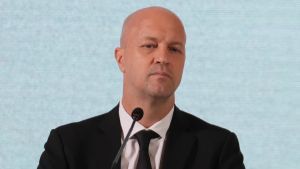JAKARTA - If you see an inter-city inter-provincial bus (AKAP) parked at a temporary stop, such as a rest area, the bus engine is definitely not turned off.
Some may be wondering, why is the bus engine not turned off to save gasoline and batteries? The Instagram account of bus company PD Putera Mulya explains why.
In uploading the @puteramulya_sejahtera_of account, it was explained that the bus engine was never turned off at the stop. In fact, at the stop, the bus stopped for a long time to rest.
"According to the technical and bus drivers, this is because currently the bus' diesel engine uses a turbo," wrote the account @puteramulya_sejahtera_of on Saturday, February 6.
https://www.instagram.com/p/CK8s6PDrSOv/
He explained, the bus engine should not be turned on or off frequently. This is because the diesel bus engine is very sensitive to frequent engine starts. "So, it was deliberately not turned off when it stopped," he explained.
Moreover, diesel engines require solid compression as well as hot temperatures to work properly. This is inversely proportional to a gasoline engine.
"If the heat process is not evenly distributed and the air circulation will not affect the turbo," he continued.
The English, Chinese, Japanese, Arabic, and French versions are automatically generated by the AI. So there may still be inaccuracies in translating, please always see Indonesian as our main language. (system supported by DigitalSiber.id)













